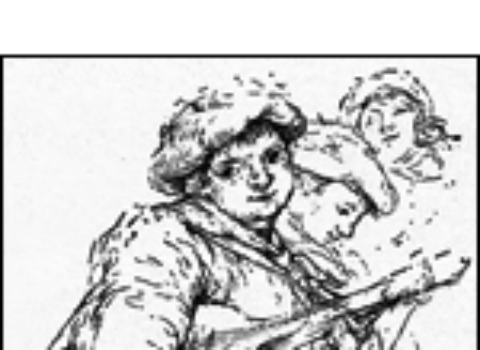Prince has long fascinated me — and the world — but he is, odd to say, an esoteric subject. He is not presently a dominant force in the culture, which itself has changed, certainly when it comes to the ways in which music is packaged and sold (or not sold). He no longer appears regularly on MTV or in motion pictures, and yet he exercises a significant pull on memory. One bite of that particular madeleine sent me on a journey concerning the complicated relationship of black men to one another, and how best to describe it, if it can be described at all:
I wasn’t interested in the Prince who produced 1999 and Purple Rain and Around the World in a Day and at least half of Sign “O” the Times (all released between 1982 and 1987). Those felt like self-consciously “white” pop albums to me, a craven desire on The Artist’s part to belong to the world outside the colored queens I had known growing up, who called Prince “Miss.” Why did he want to leave us for that non-world of convention he seemed to aspire to, where “she” got married to a woman who looked like her, then, to make matters worse, dressed as Miles Davis had while on tour promoting his rock-jazz fusion album Bitches Brew? Why did he want to betray the colored queer in himself?
At parties in New York, uptown and down, I stopped dancing when white frat boys pumped their fists in the air to “1999,” or slid across the floor when “Kiss” came on, or grabbed their obliging girlfriends — girls unlike the fierce dykes who sang and played backup for Prince in his early years — and twirled them around to “Raspberry Beret.” They didn’t know what he meant by any of it, and I did, but I no longer mattered; what mattered was Prince’s acquisition of a larger audience, those people who purchased records and filled concert halls, not the black queens who lip-synched to “Sister” while voguing near the Hudson River in the clear light of night.
I knew, after meeting Prince, that my take wouldn’t necessarily be construed as journalistic; the who what why when and where of him wasn’t the point — the point was what those moments engendered in me. As I mention in the essay, I was struck by Prince’s need for approval — particularly black male approval. This is rare enough indeed, but especially so in a star. Stars know where power lies, generally, and it’s not, generally, with black American men:
He wanted to be a boy and play in the world of corporate politics. He split with his record label, albums were released under other names, all that twisted righteousness forsaken so Prince could approximate being less a freak and more a man in the eyes of those white men he disparaged but must have admired for what they had that so few colored boys ever have: power. Maybe Prince was trying on power like he’d try on garters or fishnets. But he didn’t jettison the suit — or his suit — fast enough to win me back. And if it hadn’t been for the love of others, I might never have forgiven him. So until I met him, I saw Prince only through other people — when I saw him at all. He was like a bride who had left me at the altar of difference to embrace the normative. Could my queer heart ever forgive him? . . .
But all that gender and race was in the past. By the time Prince sat in his dressing room in St. Louis going over a few things with his security guard before I was allowed to enter, he had become someone else. Gone were the panties and the towering hairdos; they had been replaced, in recent years, by relatively tame suits, Borsalinos, and discreet pendants. Gone, too, was his nervous synthesis of black soul beats and white rock riffs; if Musicology was about anything at all, it was about the nostalgia Prince — and his audience — had for those presampling days when soul was soul, not pasteurized rap, and when Prince had been a phenomenon. And it was either because his audience was older, or Prince was older, or the music industry itself had grown older — and more embattled and more segregated along the way — that Prince, once the most forward-looking of artists, had entered the Negro music ghetto he once disavowed. Now he even dressed the part. . . .
“It’s not as if they’re willing to give it up to us because we’re us,” Prince said to me, rather conspiratorially. I took “us” to mean black people. “We’ve always had to work that way. The question is: Where’s our forty acres and a mule?” We both laughed.
I am now engaged in writing about other relationships where race and a shared gender are not only significant to those friendships, but enrich and complicate them as well. I like to think of Prince as the meta-editor for the whole project, given his understanding and need for black men he admires to love him, just as I do, too.
































































































